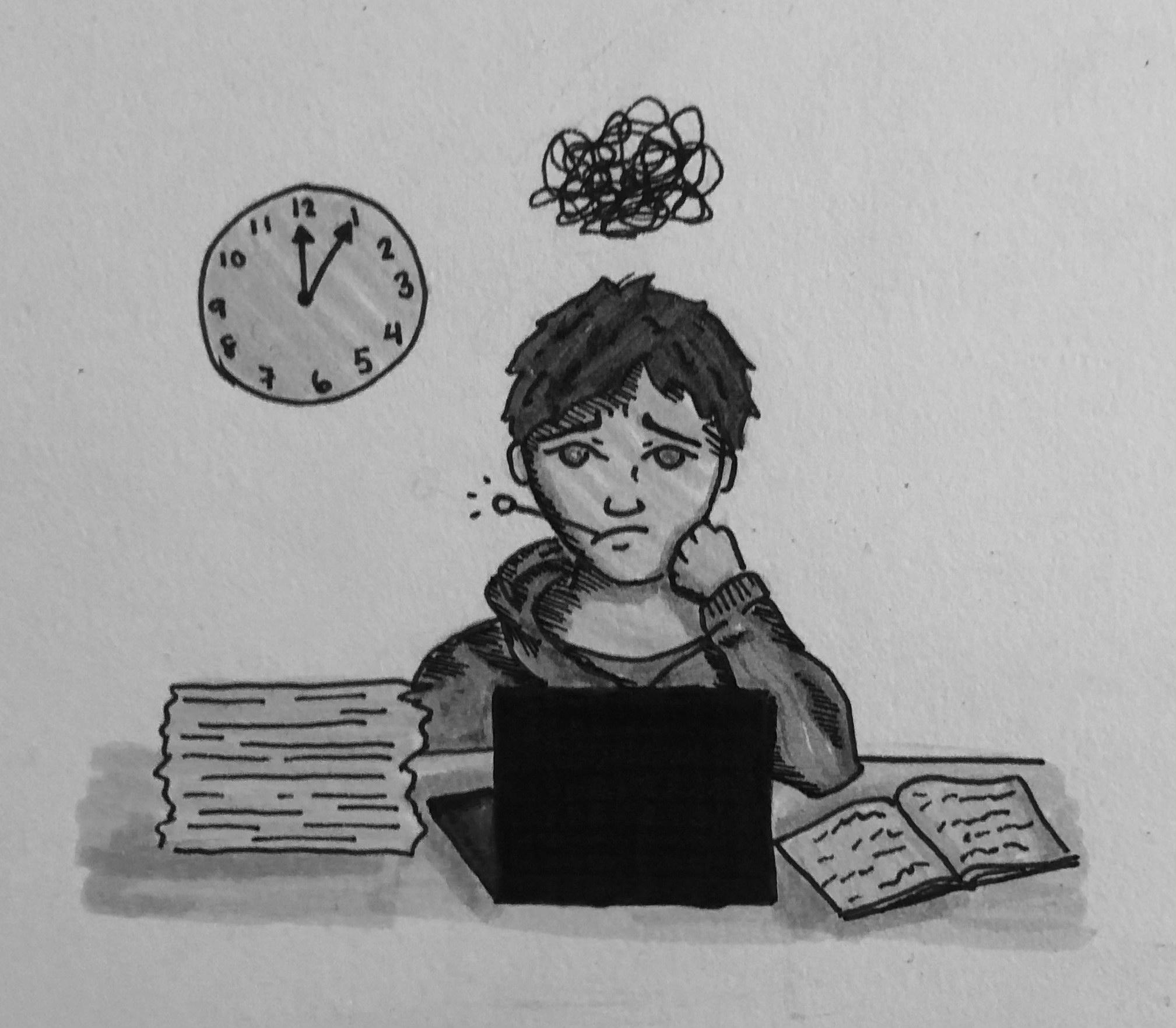‘Damn, I have a paper due at midnight’ should not be at the top of your mind when your doctor calls to tell you that you have COVID-19. For some students at GW, sadly, it is.
GW’s current accommodations for students directly affected by the coronavirus are inadequate, depending on the whims of individual professors and a lackluster Pass/No Pass policy. Students who contract the virus, are caring for a sick family member or are mourning a loved one should not have to negotiate with professors about receiving assignment extensions or excusing absences. Yet, many students have found themselves having to divide their attention between recovery and frantically making up coursework. Nobody dealing with COVID-19 should have to choose between their health and their academic survival, and it is incumbent upon GW to implement policies that ensure that does not happen.

Hannah Thacker | Opinions Editor
As a general rule, students are stretched to the breaking point right now. The sadness of losing out on the college experience and the stresses of taking courses in a virtual environment at home all contribute to a universally reduced ability to perform well academically. But for those who actually contract COVID-19 or have a roommate or relative who gets sick, it can become nearly impossible to devote the requisite time and energy to classes. Under those circumstances, students should be able to devote all of their attention to recovering or to caring for their loved one – not to worrying about tanking their GPA this semester.
Unfortunately, the University’s existing accommodations are not conducive to meeting this goal. The options GW has provided mainly consist of time-sensitive half-measures like taking a course as incomplete or marking a course as pass/fail by Nov. 6 – well before final exams. GW also suggests that students consult with advisers before making a definitive call on either of those matters. A student who – through no fault of their own – needs to take a couple weeks to deal with COVID-19 should not have to make a series of quick decisions that will jeopardize their academic path. Making an uninformed decision to convert a class to incomplete or to a Pass/No Pass basis, without the ability to weigh the downsides, may come back to bite students in the long run. And someone whose fever and shortness of breath have just been confirmed to be COVID-19 certainly does not have time to sit down with an adviser to thoughtfully weigh their options.
There are plenty of additional steps GW could take that would let students directly affected by the virus fully direct their attention to recovery or care. The pass/fail deadline could be extended to after grades come back, like last semester, or to before finals, like peers Georgetown, Tufts and New York universities have done. The pandemic is both unpredictable and worsening, and there is plenty of time between the Nov. 6 deadline and the end of the semester for something to go wrong in students’ lives in terms of COVID-19. To their credit, administrators have stated that students with “extenuating circumstances” may be allowed to take more than one course as pass/fail and may have some deadline-related flexibility. But GW’s somewhat spotty record dealing with students’ uncontrollable circumstances does not inspire hope that students’ time-sensitive coronavirus-related problems will be dealt with quickly and effectively.
On the faculty level, the University should establish guidelines for professors to accommodate students affected by the virus. As it stands right now, professors have a lot of discretion when it comes to extensions, grading and taking a class as incomplete. While many faculty are happy to defer to students who need to focus their attention on COVID-19, inflexible professors have the latitude to hurt students under the current system. Ask any student, and they will be able to list off professors who are understanding and others who draw a hard line. A two-day extension on an assignment is not going to be very helpful to a student dealing with a positive diagnosis who is worried about possible exposure to family members – especially if they have to provide proof of their problem to a skeptical faculty member.
Professors, if provided with a basic explanation by students, should allow students as much time as is reasonably possible to complete an assignment. This flexibility should be either proactive or retroactive – that is, if students are not in a position to give their professors a heads-up until after the fact, they should receive the same accommodations as those who were able to give advanced notification that their academic life would be disrupted. Professors should also be prohibited from assigning makeup assignments in lieu of in-class attendance for students with a positive result. Administrators should produce additional guidelines to that effect and provide faculty with the resources to adhere to them.
We are truly “living in unprecedented times.” That saying is trite but happens to be fully true right now. Quarantined, hospitalized or bereaved students should be able to focus fully on keeping themselves together – not on getting in their paper before the end of the day. GW has the capacity to make that possible for students, and in doing so, they would alleviate untold levels of needless stress.
The editorial board is composed of Hatchet staff members and operates separately from the newsroom. This week’s piece was written by opinions editor Hannah Thacker and contributing opinions editor Andrew Sugrue, based on discussions with managing director Kiran Hoeffner-Shah, managing editor Parth Kotak, sports editor Emily Maise, culture editor Anna Boone and design editor Olivia Columbus.


